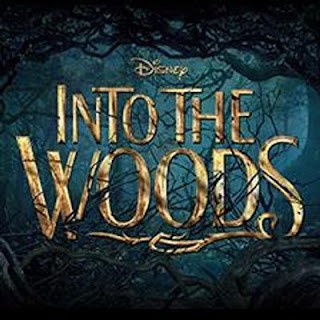I confess that this idea terrorized me and although I consider witches funny because they can go here and there with their magi cal broomstick and they use a caldron for various enchantments my imaginary world has been mainly populated by fairies and the rest of wonderful magical creatures angels included and wagons and wagons of fairy-tales since I was very little. It's one of my favorite genre this one, the one of the fairy-tales because the most important door for let us fly our imagination abandoning the ordinary world.
When I decided to request Fairy Tales for the Disillusioned
 Edited by Gretchen Schultz & Lewis Seifert and published by Princeton University Press this First October and I was approved to read it thanks to NetGalley I discovered with great pleasure that the series editor of this book is Jack Zipes.
Edited by Gretchen Schultz & Lewis Seifert and published by Princeton University Press this First October and I was approved to read it thanks to NetGalley I discovered with great pleasure that the series editor of this book is Jack Zipes. What a joy and surprise!
An eminence very known in the world of fairy-tales and professor emeritus of German and comparative literature at the university of Minnesota.
I interviewed him when Into the Woods
 the movie by Marshall
the movie by Marshall  was released.
was released.The magical musical written by James Lapine and legendary Sondheim
 became a movie in fact with Meryl Streep and with Johnny Depp
became a movie in fact with Meryl Streep and with Johnny Depp  as the terrible lascivious
as the terrible lascivious  wolf
wolf 
Here you can read my interview with Mr. Zipes.
https://buckwriter.wordpress.com/author/buckwriter/page/62/
Fairy-tales sometimes were not born exactly for being stories for children but mainly for adults. They're very adult sometimes.
Later with Brothers Grimm the idea of expanding commercially fairy-tales. A lot of adult contents removed, fairy-tales became cultural and mental food for a very young public. In these fairy-tales defined characters, the ugly terrible witch, the good godmother, prince charming, some nasty characters able to create turmoil at the protagonist, and in general a happy and sunny end after a lot of fights of various genres.
After all a fairy- tale contains a morale, there is always something that wants to teach to the public.
In this beautiful book you will find most of the biggest french names of literature of 1800 beginning of 1900 in total 19 for 36 fairy-tales.
These writers are mostly decadent, and intellectually raised during the philosophical movement of the Positivism.
France lived a straining moment at the end of 1700. The French revolution of 1789 with the decapitation, also in physical sense of Louis XVI and Marie Antoinette and the season of Terror lived with Robespierre and later the arrival of Napoleon very stressing moments. A lot of changes in terms of governments and substantially what it was a real instance of change, from monarchy to something else, became for Paris and the entire France a real period of Terror. Robespierre tried all his best for keeping in his hands the power although at the end that same power would have ruined, destroyed and killed him as well.
At the same time 1800 didn't start negatively. A new philosophical movement, the Positivism was born. Technology, progress,, new improvements in medicine field and new methods for fighting important illness, there was a new enthusiasm: the idea that industrialization, modernity would have saved the world.
As always, there were also contrary voices. Why? Well intellectual and most sensitive people started to realize something, worried: where could go all the enchantment of the world with the use and abuse of machines? What could it be of old fairy-tales when there was the necessity of building always biggest cities, reducing the green and reducing the contact of humans with nature?
And so these fairy-tales, where there is not always a real happy end, but there is maybe the reality of the times and the melancholy of the lost things never found anymore.
I consider these fairy-tales of strong actuality because world if in the past was enchanted and perfect because man lived a strong connection with nature, at the moment confused and paradoxically lost by the disenchantment produced by the progress and the idea that the materialism could replace a dream or the ability of dreaming.
All these fairy-tales are intriguing, truly captivating, put into the reality of the moment. History teaches us something of great importance: that modification of fairy-tales is indispensable for understanding our reality looking at the various changes through the lenses of the various centuries of the various story-tellers it's possible to learn where the society went on. Thanks to fairy-tales we can understand where the world is. A fairy-tale is maybe the most perfect and most powerful mirror not just for understanding our world but also our social condition and our way of life.
This book a perfect gift for Christmas, all these fairy-tales are enchanting, funny, with a touch of sadness written and translated wonderfully wonderfully well. Ah: the gift is just for adults! Keep away this book from children ;-) and please continue to present them classic fairy-tales. Maybe they will remain dream but they will give them the perception of the immensity of possibility life can present.
Many thanks to NetGalley for this book!
Anna Maria Polidori
No comments:
Post a Comment